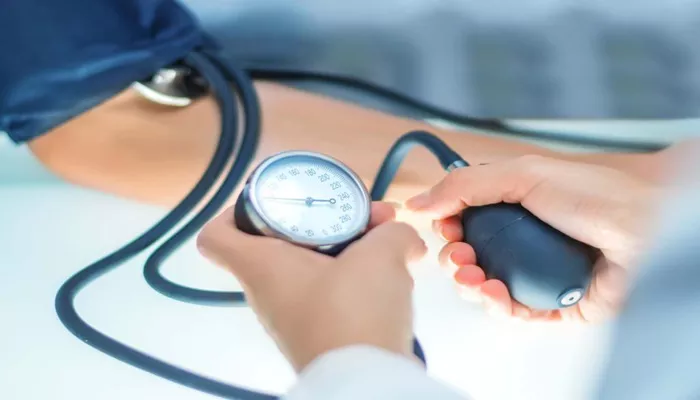Blood pressure is a critical indicator of overall cardiovascular health, reflecting the force of blood against the walls of the arteries. While many are familiar with the concept of high blood pressure (hypertension), fewer understand the implications and causes of a sudden drop in blood pressure (hypotension). This article delves into why blood pressure might drop suddenly, explores its potential causes, and discusses its implications for health.
The Basics of Blood Pressure
Blood pressure is measured in millimeters of mercury (mmHg) and recorded with two numbers. The first, or systolic pressure, measures the force of blood against the artery walls when the heart beats. The second, or diastolic pressure, measures this force between beats. A typical blood pressure reading is around 120/80 mmHg. When either of these values falls significantly below normal, it can result in symptoms like dizziness, fainting, and in severe cases, shock.
Acute Causes of Sudden Blood Pressure Drop
1. Orthostatic Hypotension
Orthostatic hypotension, or postural hypotension, occurs when a person stands up quickly from a sitting or lying position.
The sudden change in posture can cause a temporary drop in blood pressure due to the body’s delayed response in adjusting blood flow. This condition is particularly common among older adults and can be exacerbated by dehydration, prolonged bed rest, or certain medications.
2. Dehydration
Dehydration reduces the volume of blood circulating through the body, leading to a decrease in blood pressure. This condition can be caused by various factors, including excessive sweating, vomiting, diarrhea, or inadequate fluid intake.
When the body loses more fluids than it takes in, blood volume decreases, and blood pressure drops.
SEE ALSO: Will Regular Exercise Lower My Blood Pressure?
3. Severe Allergic Reactions
Anaphylaxis, a severe allergic reaction, can cause a sudden and dramatic drop in blood pressure. This occurs due to the release of histamines and other chemicals that lead to widespread vasodilation (expansion of blood vessels). Symptoms may include difficulty breathing, swelling of the throat, and a rash. Immediate medical attention is necessary to manage anaphylaxis and prevent life-threatening complications.
4. Heart Issues
Certain heart conditions, such as heart attack or severe arrhythmias, can lead to a sudden drop in blood pressure. A heart attack impairs the heart’s ability to pump blood effectively, while arrhythmias can disrupt the heart’s normal rhythm. Both conditions can result in reduced cardiac output, leading to hypotension.
5. Blood Loss
Significant blood loss, whether due to trauma or internal bleeding, can cause a dramatic drop in blood pressure. When the body loses a substantial amount of blood, the volume of blood circulating through the arteries decreases, leading to hypotension. Rapid medical intervention is crucial to address the underlying cause and restore blood volume.
Chronic Conditions Leading to Sudden Drops in Blood Pressure
1. Endocrine Disorders
Certain endocrine disorders can lead to fluctuations in blood pressure. For example, adrenal insufficiency (Addison’s disease) affects the production of hormones that regulate blood pressure. A sudden drop in blood pressure can occur during an adrenal crisis, a serious and potentially life-threatening condition requiring immediate treatment.
2. Medications
Certain medications, including diuretics, alpha-blockers, and beta-blockers, can cause blood pressure to drop suddenly.
Diuretics reduce fluid volume in the body, while alpha-blockers and beta-blockers affect blood vessel constriction and heart rate, respectively. It’s important to monitor blood pressure regularly when on these medications and adjust dosages under medical supervision.
3. Sepsis
Sepsis, a severe infection that spreads throughout the body, can lead to a sudden drop in blood pressure. This occurs because the infection causes widespread inflammation and vasodilation. Sepsis can rapidly progress to septic shock, characterized by extremely low blood pressure and organ failure, necessitating immediate medical intervention.
4. Autonomic Dysfunction
Autonomic dysfunction involves problems with the autonomic nervous system, which controls involuntary bodily functions, including blood pressure regulation. Conditions like Parkinson’s disease or diabetic neuropathy can impair the body’s ability to regulate blood pressure, leading to sudden drops, especially when changing positions or during stress.
Symptoms of Sudden Blood Pressure Drop
Recognizing the symptoms of a sudden drop in blood pressure is essential for prompt treatment. Common symptoms include:
Dizziness or Lightheadedness: Feeling faint or unsteady, especially when standing up quickly.
Fainting: Loss of consciousness due to insufficient blood flow to the brain.
Blurred Vision: Vision disturbances resulting from inadequate blood flow.
Nausea: A feeling of queasiness or upset stomach.
Fatigue: Unusual tiredness or weakness, which can be a sign of inadequate blood flow to vital organs.
Preventive Measures
Preventive measures can help mitigate the risk of sudden blood pressure drops:
Stay Hydrated: Regular fluid intake is vital for maintaining blood volume and pressure.
Monitor Medications: Regularly review and adjust medications with a healthcare provider.
Manage Chronic Conditions: Effective management of conditions like diabetes and heart disease can help maintain stable blood pressure.
Healthy Lifestyle: Adopting a balanced diet, regular exercise, and avoiding excessive alcohol can support overall cardiovascular health.
Conclusion
A sudden drop in blood pressure can be alarming and may signal an underlying health issue. Understanding the various causes, recognizing symptoms, and seeking timely medical attention are crucial for effective management and prevention of complications. By staying informed and proactive about blood pressure health, individuals can better protect their cardiovascular system and overall well-being.


